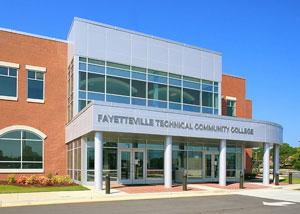
(State) Governor Pat McCrory has urged North Carolina voters to approve $2 billion for public service investments such as building projects at state universities and technical institutes, new facilities for the National Guard, and sewage renovations in small towns.
McCrory spent much of last year convincing state lawmakers to put the referendum on the ballot. He was joined at a kick-off event by a handful of key legislators. Organizers said Senate Leader Phil Berger, often considered the state’s most influential elected official, did not attend because he had a scheduling conflict. “North Carolina is the ninth most populous state,” McCrory said. “We have a choice. Do we prepare for the future, or do we want the leaders of the future to have to react to what we didn’t do?”
Organizers, led by former state Supreme Court Justice Bob Orr, solicited financial contributions for a multi-million-dollar advertising campaign to include social media, mailers and phone calls. The Connect NC bond referendum campaign went statewide and culminates in the vote on March 15. It’s been 15 years since the last general obligation bond was approved by voters to upgrade the state’s infrastructure. McCrory points out that since then North Carolina has added 2 million people in population.
The governor likes to say passage of $2 billion in bonds will connect North Carolina to the 21st century through statewide investments in education, parks, safety, recreation, and water and sewer infrastructure. The Connect NC bonds will allow the state to pay for 50-years’ worth of assets with 20-year financing. No tax increase is necessary because of the state’s strong revenue growth and ample debt service capacity. McCrory points out North Carolina is one of only 10 states that have earned coveted triple-A bond ratings from all three major ratings agencies.
The state university system would be the biggest beneficiary of passage with nearly half the amount designated for campus improvements. Fayetteville State University would receive only $10 million, for renovation of the Lyons Science Building. It’s the least amount designated for each of the 16 campuses in the UNC system. Community colleges would share $350 million. Fayetteville Technical Community College is one of only two schools to receive 8-figure amounts, $10.66 million. FTCC is the 4th largest of the state’s 58 community colleges.
(Local) A separate bond issue on the ballot is a $35 million proposal for City of Fayetteville park facilities and improvements to existing recreation centers. Passage of the referendum could result in an ad valorem tax rate increase of $.0135 per $100 dollars of property valuation. All facilities would be located within the Fayetteville city limits. The bond package includes two senior centers, a tennis center and sports field complex; also, two skateboard parks, a Cape Fear River Park, seven splash pads and improvements to seven existing parks. The tennis center would be built at Mazerick Park for players of all ages and ability levels. It would include four clay courts and thirteen hard courts, plus a tournament championship court with seats for 1,000 spectators.
The sports complex for baseball, soccer and softball would be located on city-owned property off Field’s Road on the east side of town. One of the skateboard parks would be a large in-ground concrete facility to serve the entire Fayetteville-Cumberland County region. There would be two smaller parks. A river park is planned to provide recreational activities on the Cape Fear.
Six more popular splash pads would be located at Cliffdale Recreation Center, E.E. Miller, Gilmore Therapeutic Center, Kiwanis, Massey Hill and Myers Park Recreation Centers as well as an additional location to be determined. Improvements would be made to seven existing parks to include the renovation of some existing buildings and various park grounds. The updates would be at Clark Park & Nature Center, the Dorothy Gilmore Therapeutic Park, Brentwood School Park, Massey Hill Recreation Center, Martin Luther King Jr. Park, Mazarick Park and Seabrook Park.
The referendum will not allow voters to pick and choose selected projects. It’s an all or nothing proposition. The city says some of the facilities included in the bond proposal would be able to function with little or no additional operating funds. The city also says that membership costs and entrance fees would be required. Memberships would be offered at different levels (family, couple, senior, etc.) and daily passes would be available for those who go less often or could not afford yearly memberships.

 How to resolve AdBlock issue?
How to resolve AdBlock issue? 








